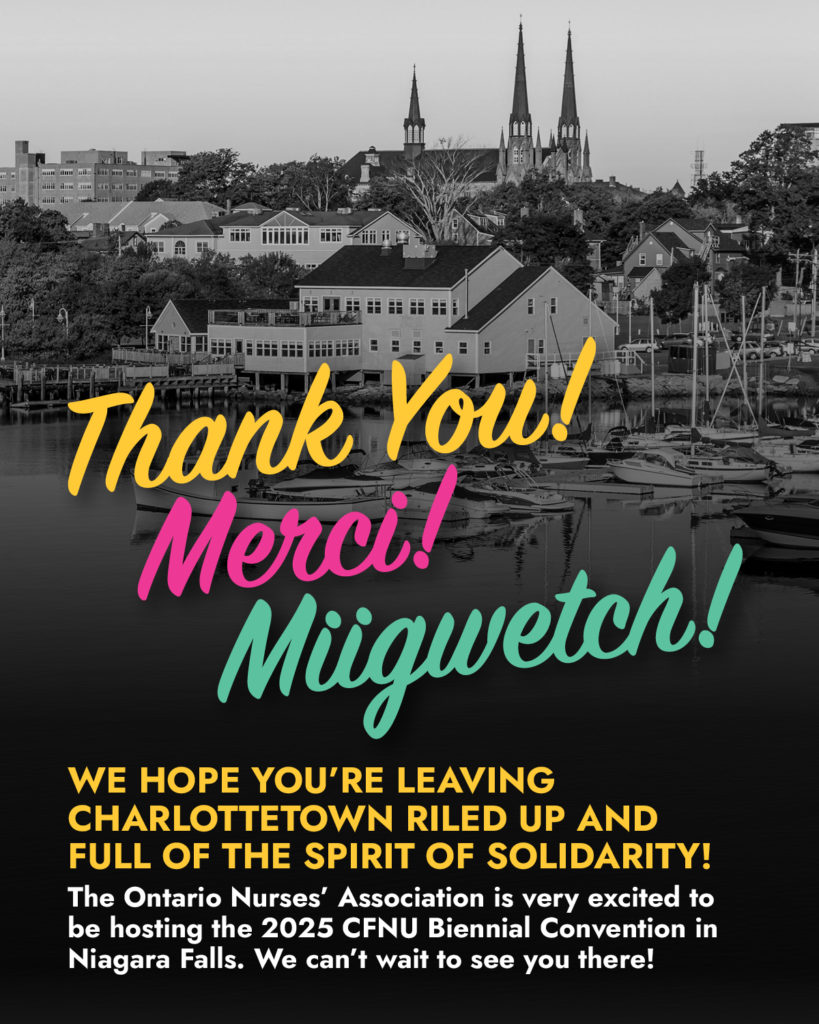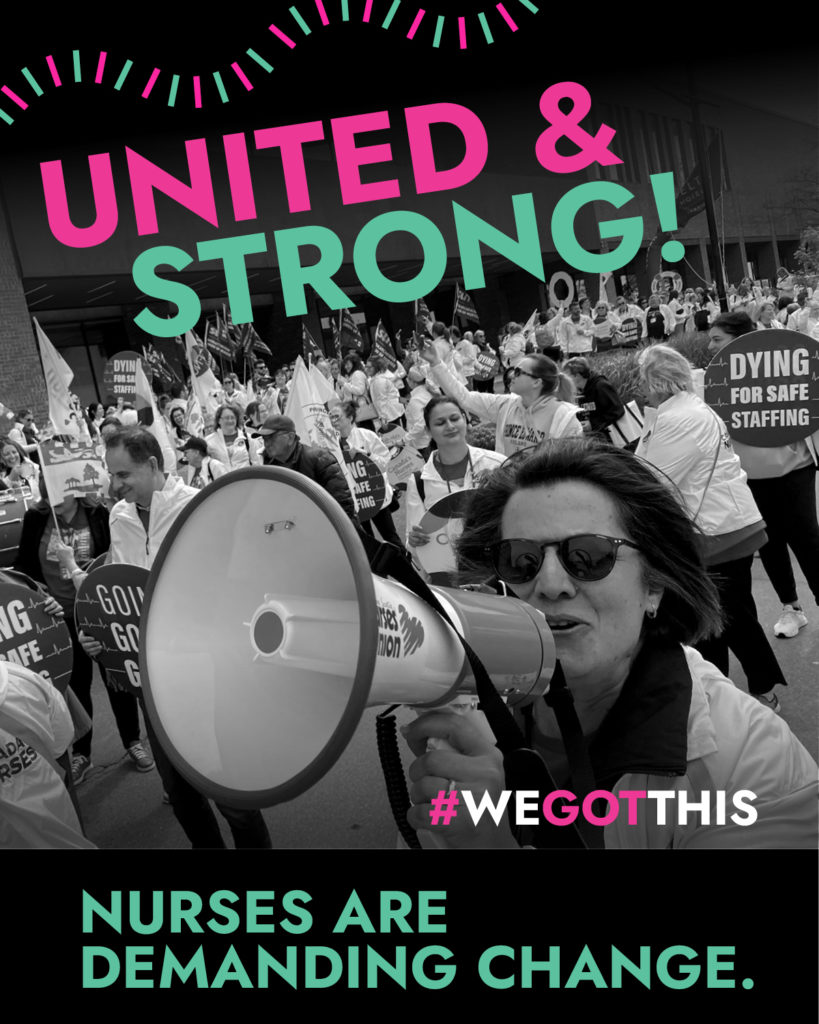
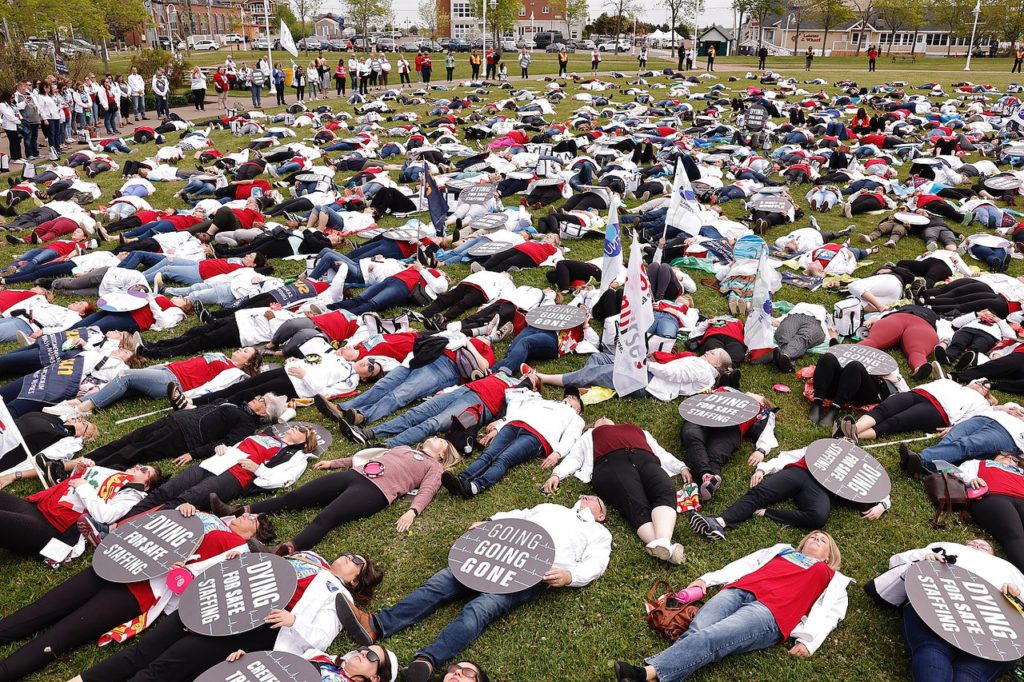
“HEY! HEY! HO! HO! UNSAFE STAFFING’S GOT TO GO!”
The voices of more than 1,000 of Canada’s nurses echoed through the streets of downtown Charlottetown. Above, residents waved from windows as the crowd passed by, a sea of swinging flags, banging tambourines and one loud unified voice. The white-jacketed wave rolled through the streets, energy building block by block, before spilling onto the grass of Confederation Landing Park.
“We are dying for safe hours of work,” exclaimed Pauline Worsfold, lifelong activist and a nurse of 42 years.
At her cue, hundreds quietly lay down in the grass, surrounded by more nurses standing in silent support around them. Impactful and moving, the die-in began with a moment of silence to honour and remember every patient, family and nurse who has and continues to face the challenges of Canada’s overcapacity and understaffed health care system.
As the motionless bodies filled the lawn of the park, nurses took to the stage to share their experiences working through the health care crisis in different provinces. The air was filled with the spirit of solidarity and strength as the speakers shared stories of struggle and triumph.
They spoke of oppression and a lack of diversity in health care. They shared personal stories of experiencing the health system as both a patient and a nurse. They spoke to the painful impact understaffing has on patients and the desperate need for change.
The speakers called on their colleagues to continue the important work to improve health care for everyone, and to create a diverse and welcoming work environment across the country.
As nurses rose up from the ground, the calls for change grew louder.
For safe nurse-patient ratios. For safe staffing levels. For safe hours of work.
As Worsfold said, “Nurses cannot and will not stop fighting until our patients are safe.”
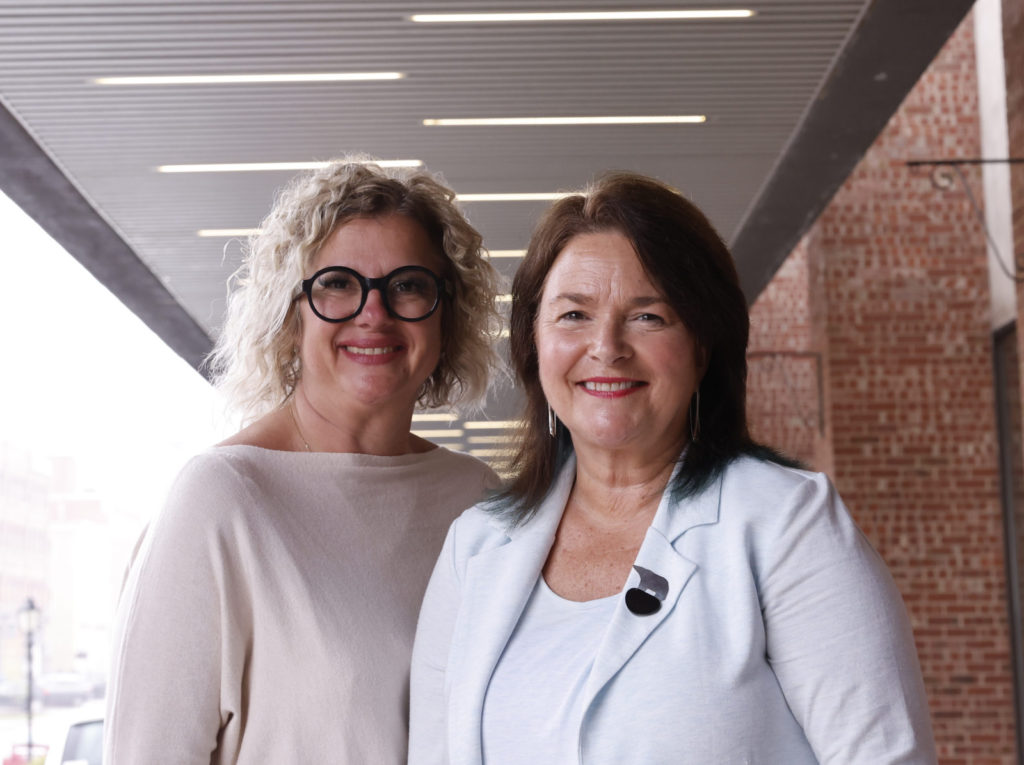
“It is an honour to continue serving as president of the CFNU and help amplify the voices of nurses across the country,” said Silas, who has served as CFNU’s leader for the past 20 years.
A passionate spokesperson in both of Canada’s official languages for nurses’ issues and labour rights, Silas was president of the New Brunswick Nurses Union from 1990 to 2000 – the youngest nurses’ union president in Canadian history.
She was born in Dalhousie, N.B., where her father was a leader of the mill workers’ union at the Abitibi newsprint plant. She is well-known throughout Canada as a strong feminist and a champion of public health care, workplace rights and social justice.
“Health care remains in crisis, but nurses know it doesn’t have to be this way,” Silas said. “Our voices are the key to protecting and enhancing Canada’s public health care system: governments must listen, and they must act. This is the respect I will keep fighting for.”
Angela Preocanin, first vice-president of the Ontario Nurses’ Association since 2021, has been acclaimed as Secretary-Treasurer of the CFNU, replacing Pauline Worsfold of United Nurses of Alberta, whose retirement from that role takes effect today.
Preocanin, a registered nurse, has served in executive positions at ONA over the past two decades and has worked in thoracic surgery, head and neck, urgent care and home hemodialysis. She will continue in her current role of ONA’s executive.
“Canada’s public health care system is still recovering from the catastrophe of the pandemic, and the levels of nursing staffing are awful everywhere in Canada,” Preocanin said. “It’s a great honour to be entrusted by the CFNU’s membership to contribute to the important advocacy needed to get Canada’s health care system back on track.”
The easy-to-use Nursing Toolkit for Planetary Health is designed to equip nurses with the information and resources to become influential change-makers for a more sustainable, resilient and low-carbon health care system.
“Planetary health” is a term that reflects Indigenous knowledges and understandings of human interconnectedness to nature. It describes the idea that to support and sustain human health and well-being, we need to promote and maintain the health and well-being of the Earth.
This concept is central to addressing the key ecological crises we face, including climate change. In Canada, the health care sector contributed approximately 4.6% of the country’s total greenhouse gas emissions, which is the third highest per-capita greenhouse gas emissions from health care in the world.
This toolkit focuses on how nurses can contribute to climate action and planetary health at the individual level by practicing environmentally friendly habits, at the unit level by addressing day-to-day nursing practice, and at the institutional level by raising awareness and advocating for policy changes.
This toolkit can be used as a guide to prepare and organize meetings with senior leadership within a workplace. The objective is to promote sustainable economic, policy and social transitions so that future generations can inherit a healthier and safer planet.
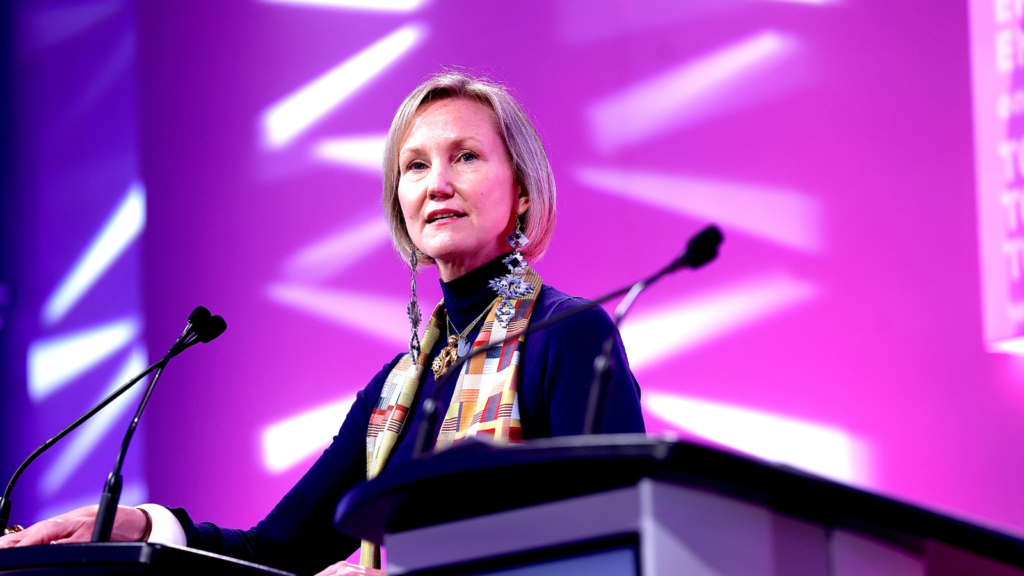
Meredith Preston McGhie’s mission at the Ottawa-based Global Centre for Pluralism is to make it possible for societies to thrive by valuing their differences, not fighting over them.
Speaking to delegates at the final session of the Canadian Federation of Nurses Unions’ Biennial Convention Friday afternoon, McGhie said that while Canadians can often contribute to this process in conflict zones abroad, we need to engage in the same process to keep what we have at home.
McGhie is secretary general of the centre, an independent charitable organization founded by the Aga Khan, religious leader of the world’s estimated 15 million Ismaili Muslims, who are scattered through 25 countries around the world – a religious and cultural minority in each.
So, said McGhie, for the Ismaili community, “being able to create spaces of community in a broader society is existential.”
From this comes the centre’s often almost impossible goal, she explained: getting groups of people who are in conflict in different parts of the world and really don’t want to talk to each other into a relationship where they can learn what they have in common.
Whether we’re talking about civil war in Sudan, the invasion of Ukraine, bitter disagreements among Canadians about COVID-19 vaccines, or figuring how to come to grips with the legacy of colonialism in Canada, McGhie says, “we have to spend more time to bring people around the table.”
“Canada in the world needs to play a role,” she said. “We need to play the same role at home.”
Small acts, she explained, give each of us an opportunity to be peacemakers; finding the middle ground allows us to see communities with which we may be in conflict as human beings; and being able to belong to our own community gives us agency and safety.
But just retelling histories about our communities risks upholding the status quo and upholding divisions, she noted. We have to feel that we have agency, she said, but we also have to ensure that others have the same.
“Pluralism is a muscle we have to exercise,” she said. “It reflects on us the need to work with our community partners.”
